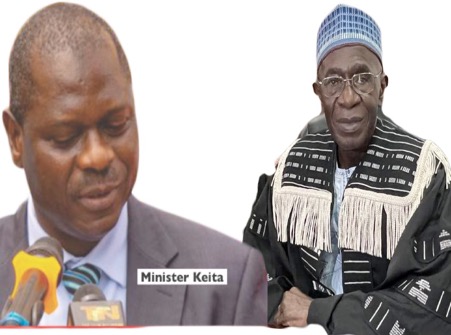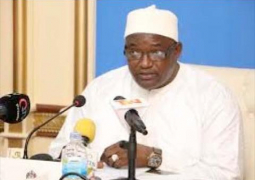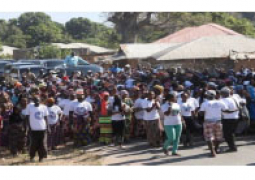
The 2022 Revised Budget includes 30% salary-increment for the civil servants.
According to Finance minster, the 30% increment in salaries is estimated to generate a personal income tax of D222.5 million in the remaining six months of the year.
The submission of the revised budget is premised on several budgetary issues including the downward revision of total revenue amounting to D3.3 billion (11% reduction of the approved 2022 budget); the reduction of expenditure of D1.2 billion from domestic debt service and cuts from MDAs (3.4% of the approved budget).
The funding of salary increment amounting to D575 million and the creation of two new ministries (Ministry of Commission and Digital Economy and the Ministry of Public Service, Administrative Reforms, Policy Coordination and Delivery) also formed the factor of the bill.
In his introductory remarks, the finance minister said as both the domestic and global economies began to recover from the effect of the coronavirus pandemic in 2022, the Russia Ukraine war brought about a dramatic shift in the global economic condition characterised by heightened supply side constraints, higher food and energy prices fuelling inflationary pressures across the globe.
He said the resulting effect is the growing poor performance of domestic resources mobilisation, affecting oil related taxes as well putting increasing pressures on governance spending needs. These effects together with the creation of additional two new ministries and the decision of government to increase the salary of civil servants necessitated the revision of the approved 2022 budget to accommodate these changes.
The finance minister further explained the rational underpinning the revised budget, saying that the government has taken a decision to revise the approved 2022 budget due to the four factors mentioned above.
He stated that the global economic shocks resulted in the non-realisation of more than 11% of the revenue budget. To ameliorate that, he said, the government decided to reduce other charges and interest on domestic debt to contain the impact of the revenue reduction and to be able to accommodate the increase in salary of the civil service and a revised remuneration package for cabinet members.
He said overall, this has increased the personnel cost by D575.8 million. He added that the increase is applicable to certain public institutions that use the civil service Integrated Pay Scale.
He explained that to finance this salary increment, government decided to embark on expenditure cuts across MDAs. These cuts affected other Current by D76.3 million, capital expenditure by D116.3 million, and debt Service by D415 million.
According to the finance minister, on revenues, there is general decline in revenues and grants, the continuous subsidy on petroleum products to the tune of nearly D1.0 billion for the first six months of the year affected the revenue performance for oil related products.
He also stated that Budget supports grants has been revised downwards due to the non-materialisation of budget support from the EU and AFDB for a combined amount of US$30 million (about D1.5billion.
He added that for non-tax revenue, US$ 30 million has been revised downward following the non- realisation of this revenue from the petroleum sector receipts. The sum of these three revenue items resulted in the overall reduction of D3.277 billion in the revenue budget.
Regarding revenue and expenditure, the finance minister stated that total revenue and grants for the revised 2022 fiscal year is projected to reach D26.6 billion, about 11 percent decline compared to the approved 2022 budget. He said the decline in the revised budget is mostly on account of poor performance tax, non-tax and budget support grants.
He stated that the lower performance in non-tax revenue of D1.47 billion, “is mostly relating to lower than programmed non-tax revenue from the petroleum sector for 2022.” He added that the project grants are projected to remain unchanged at D9.66 billion, whilst programme grants are estimated to decline to D1.1 billion in the revised budget compared to D2.6 billion per the approved 2022 budget. He said this downward revision is explained primarily by the D1.6 billion expected in budget support from EU and AFDB. As a result, the Finance minister said, 2022 revised budget only factors “budget support to the tune of D1.1 billion from the World Bank.”
He also stated that the revised budget would include immediate revenue measures which would help address the increase in the wage bill resulting from the 30% salary increment. “As a result, the 30% increment in salaries is estimated to generate a personal income tax of D222.5 million in the remaining six months of the year.
Regarding the expenditure policies , the Finance minister said the 30% basic salary increase only covers civil servants (ministries and departments) as well as subvention hospitals under the Ministry of Health and subvention schools under the Ministry o Basic and Secondary Education.
He stated that the general salary increase of 30% on basic salaries excludes pensioners as pensions increased by 100% in 2018.





